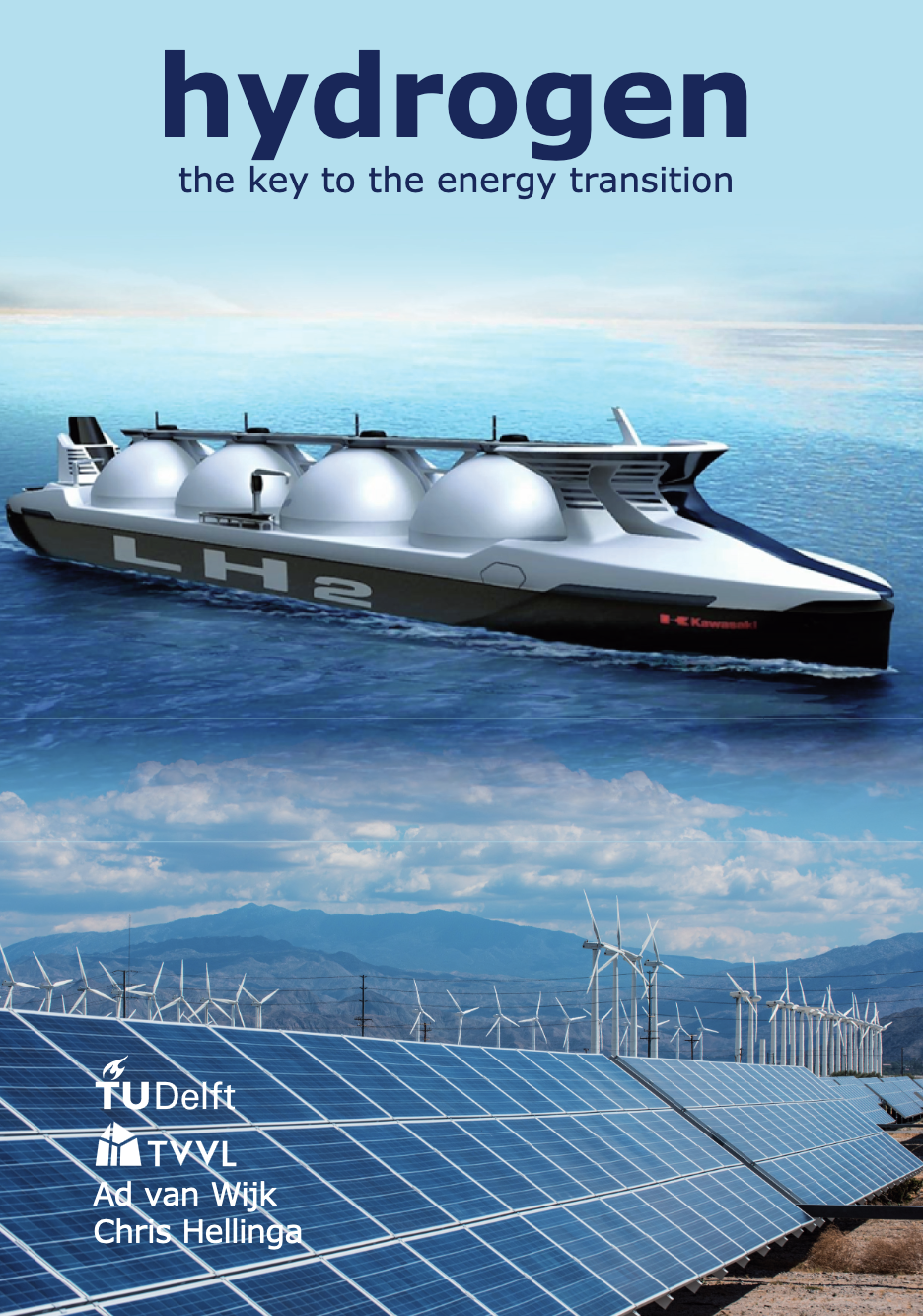
Hydrogen, the key to the energy transition
Hydrogen – the key to the energy transition
Hydrogen – element number one in the periodic table and the smallest, most common atom on earth. The time has finally come to put it to good use on a large scale, for a more sustainable planet.
This is hardly a new idea. In 1874, in his novel The Mysterious Island, Jules Verne (1828-1905) wrote:
“Yes, my friends, I believe that water will one day be employed as fuel, that hydrogen… will represent an inexhaustible source of heat and light.”
In the Netherlands, too, we have been here before. Some 60 per cent of what was known as ‘town gas’ in the 1950s and ’60s was in fact hydrogen, made from coal. Now hydrogen is back – with a devastating effect on fossil fuel production. Thanks to the plummeting prices of solar and wind energy, ‘green’ gas – yes, hydrogen – is set to push out current fossil fuel systems. You can store it, you can transport it easily over long distances and you can convert it into various forms of energy. Which means you need far less overcapacity built into your system. And it offers the added benefit of converting existing natural-gas distribution grids and appliances to
hydrogen at relatively low cost.
This solution is many times more cost-effective than the ‘all-electric’ alternative, which would require substantial and basically unnecessary investments in additional infrastructure and back-up capacity. We would be far better off spending our money to turn the natural-gas grid into a hydrogen grid. In the meantime, locally generated electricity – perhaps even bolstered by a car park full of electric vehicles – can be linked to a DC network to play its part in the transition to sustainable
energy. Later, hydrogen-powered fuel-cell electric cars could also be plugged straight into this system.
The decision to decommission the Groningen gas fields will have costly implications, but the transition to sustainable energy need not add that much to the price. Even more so when taking into account the financial benefits of an energy system without emissions, pollution, asset destruction
and geopolitical costs.
With this paper, Professor Ad van Wijk and his colleague Chris Hellinga have made a valuable contribution to the energy transition. We as the TVVL Association for People, Technology and Society feel honoured by the privilege of publishing it.
Download the full report here (pdf).